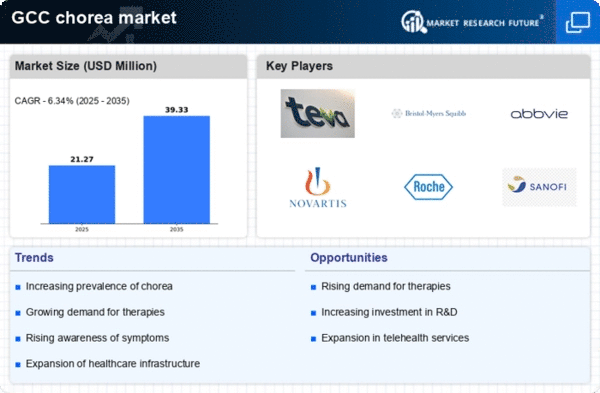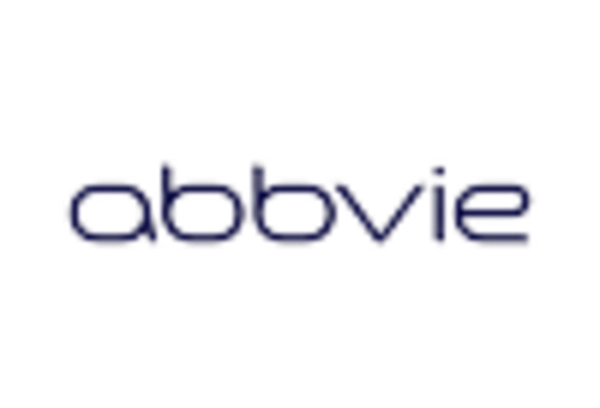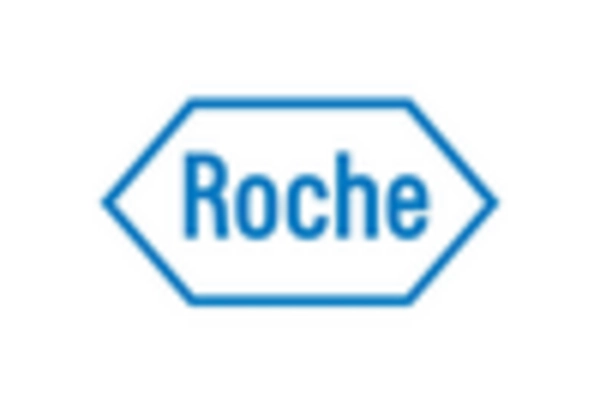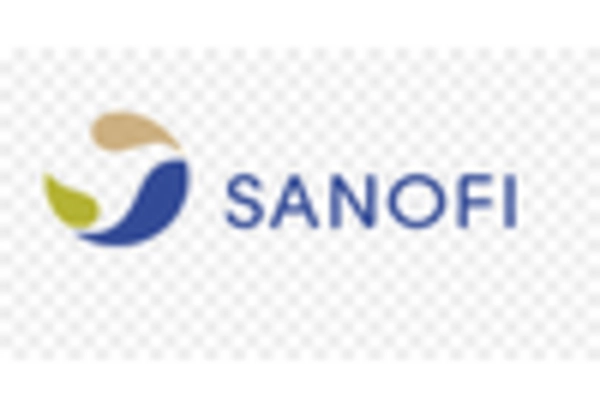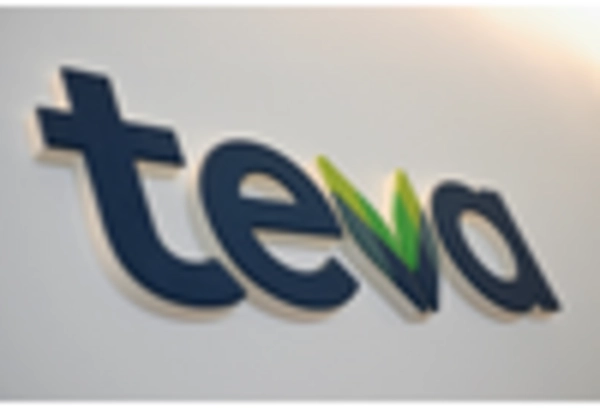Rising Healthcare Expenditure
The increase in healthcare expenditure across the GCC is a crucial factor influencing the chorea market. Governments in the region are investing heavily in healthcare infrastructure, with budgets for health services growing by approximately 10-15% annually. This financial commitment is aimed at improving access to care and enhancing treatment options for various disorders, including chorea. As healthcare spending rises, there is a corresponding increase in the availability of advanced therapies and diagnostic tools. This trend is likely to attract more patients seeking effective management of chorea disorders, thereby driving market growth. Additionally, the expansion of health insurance coverage in the GCC may further facilitate access to necessary treatments, contributing to a more favorable environment for the chorea market.
Government Initiatives and Funding
Government initiatives aimed at improving healthcare infrastructure and funding for neurological research are pivotal for the chorea market. In the GCC, various health ministries are prioritizing the establishment of specialized centers for neurological disorders, which include chorea. Increased funding for research projects is also evident, with allocations reaching millions of $ annually. These initiatives not only enhance the quality of care for patients but also encourage pharmaceutical companies to invest in the development of new treatments. As a result, the chorea market is likely to benefit from a more robust research environment, leading to the introduction of innovative therapies and improved patient management strategies.
Technological Innovations in Treatment
Technological advancements in the development of therapies for chorea disorders are significantly influencing the chorea market. Innovations such as gene therapy and advanced pharmacological treatments are emerging as potential solutions. For instance, the introduction of novel medications targeting specific pathways in chorea has shown promise in clinical trials, potentially improving patient outcomes. The GCC region is witnessing a surge in research initiatives aimed at harnessing these technologies, with investments in biotechnology and pharmaceutical sectors increasing. This trend is likely to enhance the availability of effective treatments, thereby attracting more patients and healthcare providers to the chorea market. As a result, the market may experience substantial growth, driven by the demand for cutting-edge therapeutic options.
Growing Demand for Personalized Medicine
The shift towards personalized medicine is emerging as a significant driver in the chorea market. Patients are increasingly seeking tailored treatment options that consider their unique genetic and phenotypic profiles. This trend is particularly relevant in the GCC, where healthcare providers are beginning to adopt precision medicine approaches. The integration of genetic testing and biomarker identification into treatment plans for chorea disorders may enhance therapeutic efficacy and minimize adverse effects. As healthcare systems in the region evolve, the demand for personalized therapies is expected to rise, potentially reshaping the landscape of the chorea market. This shift could lead to increased collaboration between researchers, clinicians, and pharmaceutical companies to develop customized treatment regimens.
Increasing Prevalence of Chorea Disorders
The rising incidence of chorea disorders in the GCC region is a notable driver for the chorea market. Factors such as genetic predispositions and environmental influences contribute to this increase. Recent studies indicate that the prevalence of Huntington's disease, a primary cause of chorea, is estimated to affect approximately 5-10 individuals per 100,000 in the GCC. This growing patient population necessitates enhanced healthcare services and treatment options, thereby stimulating market growth. As awareness of these disorders expands, healthcare providers are more likely to seek innovative therapies, which could lead to a more competitive landscape in the chorea market. Furthermore, the increasing burden on healthcare systems may prompt governments to allocate more resources towards research and development, ultimately benefiting the market.


